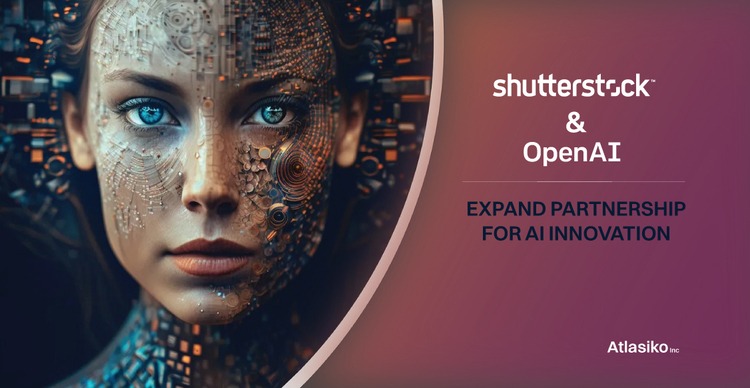Shutterstock has announced its plans to expand its collaboration with OpenAI, a startup specializing in artificial intelligence (AI). Under the extended partnership, OpenAI will have access to Shutterstock's vast collection of training data, which includes images, videos, music, and associated metadata. In return, Shutterstock will gain priority access to OpenAI's latest technology and new editing capabilities, enabling customers to transform images in Shutterstock's stock content library.
The collaboration goes beyond data licensing. OpenAI will also work with Shutterstock to bring generative AI capabilities to mobile users through Giphy, a GIF library recently acquired by Shutterstock from Meta. This move aims to provide enhanced creative tools and features to users on mobile platforms.
Shutterstock's CEO, Paul Hennessy, expressed his enthusiasm for the renewed and expanded partnership, stating that it reinforces Shutterstock's commitment to driving AI tech innovation. He believes this collaboration positions Shutterstock as the preferred data and distribution partner for industry leaders in generative AI.
The relationship between stock content galleries and generative AI startups has often been complicated and contentious. Generative AI, particularly in the realm of art, poses a potential threat to stock galleries, as it can generate highly customizable stock images instantly. Some contributors to stock image galleries, such as artists and photographers, have expressed concerns about generative AI startups profiting from their work without proper credit or compensation.
Earlier this year, Getty Images filed a lawsuit against Stability AI, the creators of the AI art tool Stable Diffusion, accusing them of unlawfully copying and processing millions of copyrighted Getty Images submissions for training their software. Similarly, artists have sued Stability AI and Midjourney, alleging that these AI art creation platforms violated copyright law by using their work without permission.
The use of public images, including copyrighted ones, for training AI models raises questions about the fair use doctrine. While some experts argue that such usage falls within fair use, this is a matter that is unlikely to be settled definitively in the near future.
In contrast to Getty Images, Shutterstock has chosen to embrace generative AI, forming partnerships with OpenAI and other companies like Nvidia, Meta, and LG. Through these collaborations, Shutterstock aims to develop generative AI models and tools across various domains, including 3D models, images, and text. To address concerns raised by artists on its platform, Shutterstock operates a "contributor fund" that compensates artists for their contributions to training Shutterstock's generative AI models, including ongoing royalties for newly generated assets.
With its expanded collaboration with OpenAI and its proactive approach to generative AI, Shutterstock aims to remain at the forefront of AI tech innovation and maintain its position as a leading data and distribution partner for generative AI industry leaders.







